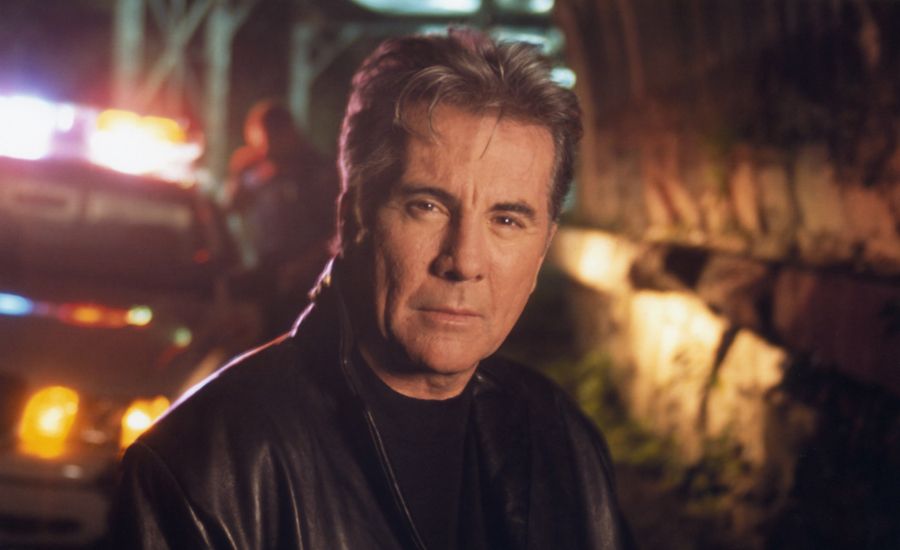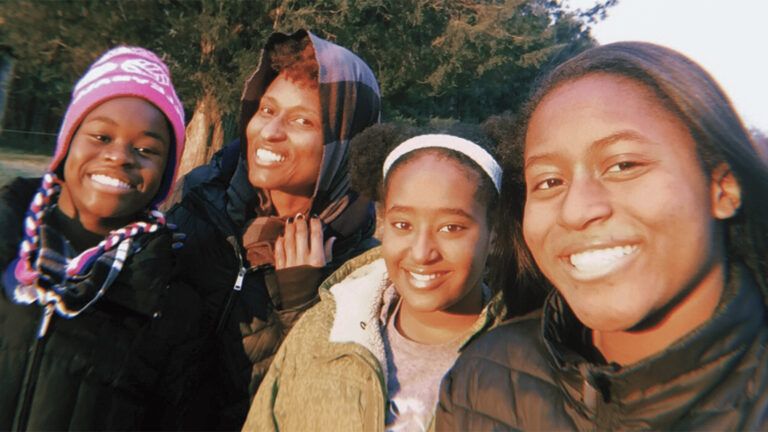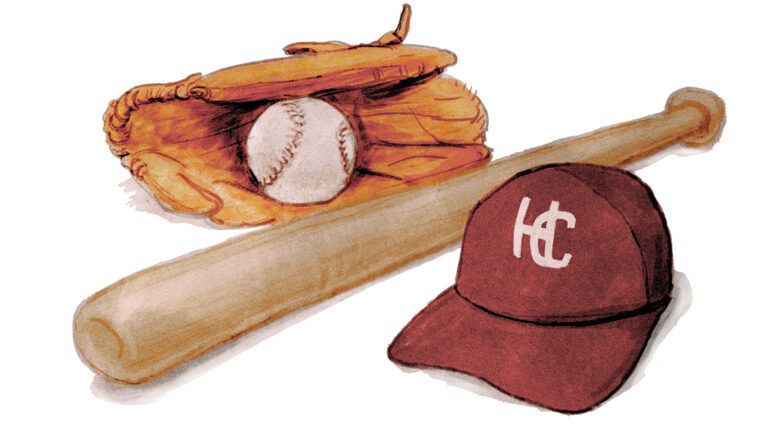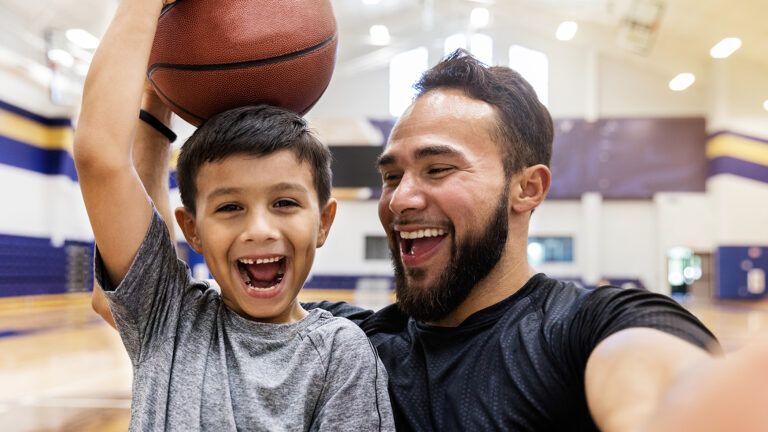These days people know me as the host of America’s Most Wanted, the program responsible for helping capture more than 800 fugitives, many of whom were on the FBI’s most-wanted list. I’m a passionate (some might say outspoken) advocate for missing children and their families.
I’ve testified before Congress, pushing to get laws passed to protect the rights of crime victims and prevent the exploitation of children. I guess I’ve become something of an expert on fighting crime.
But back when my six-year-old son, Adam, was kidnapped from a south Florida shopping mall and murdered, I was just a typical suburban dad. My child at risk? The thought never occurred to me. I lived in a nice neighborhood, safe from violence and the kind of predator that comes after innocent kids.
I know better now.
That July afternoon in 1981 my wife, Reve, took Adam to the mall with her to shop for lamps. Adam spotted some kids playing video games in the department store and asked if he could play too. Reve consented. She walked two aisles over to the lighting department.
When she went back to the video games less than 10 minutes later, Adam was gone. The police eventually found his body in a canal a hundred miles away. His killer was never caught.
Did you know that 80 percent of couples who suffer the murder of a child end up divorced? The tragedy puts an incredible, often unbearable, strain on a marriage. Reve and I were no different. We spiraled into depression, couldn’t eat, couldn’t talk to each other.
I couldn’t even seek solace in my faith because I kept questioning, Where is God in all of this?
It was only when the county medical examiner, a wise and compassionate man, told me what he believes—there is evil in the world, but God gives good people the strength to fight it—that I found a way out of my despair, a way to give meaning to my loss. And that is to work as hard as I can for the triumph of good. To share what I’ve learned with other people, so together we can make the world a safer place for our children.
If I can help keep one family from going through what Reve and I went through, if I can help prevent one child from being victimized, then our Adam will not have died in vain.
That’s why I went to Washington, D.C., in 1982, when my grief was still raw, and buttonholed congressmen about the urgent need for a centralized computer system for reporting and tracing youngsters who’d disappeared (the Missing Children Act, passed later that year, put that system in place).
That’s why Reve and I cofounded the National Center for Missing and Exploited Children. That’s why I told our story on talk shows, in newspapers and magazines, including Guideposts, in 1984. And that’s why I’m here now to give you some tips on how you can best protect your children, whether they’re toddlers or teenagers.
Never leave your child alone in a public place.
Not for a minute. you might think, as Reve and I did, that a six-year-old will do exactly as you say when you tell him, “Stay right here until I get back.” Yes, children want to obey. But most kids haven’t fully developed the judgment to know which adults have their best interests at heart and which are trying to take advantage of them. It’s easy for a youngster to be swayed into thinking, Well, it’s a grown-up, and I’m supposed to listen to grown-ups.
We believe that’s what happened with Adam. Some other boys, teenagers, were playing video games the same time he was. They got rowdy, so a security guard ordered all the kids out of the store. Adam, whom we’d brought up to always respect his elders, did as he was told. He would have thought it impolite to argue.
Outside the store, he must have looked confused, lost. Whoever snatched him probably said something like, “I’ll help you find your mom. Come with me.” And Adam went. He didn’t know any better. That’s the reason I think my next point is so important.
Teach your children to protect themselves.
There are some basic safety rules all kids should live by. Teenagers too. Rule #1: Check first. Before your child goes anywhere with or gets into a car with any person, before she accepts anything from anyone, she should always ask you for your okay.
Rule #2: Don’t go out alone. Make sure your child understands he must take a friend or a sister or brother with him whenever he’s going someplace without you, even if it’s just down the street to play. There is safety in numbers.
Rule #3: It’s okay to say no. What should your kids do if someone treats them in a way that makes them feel confused, uncomfortable or scared? Tell them to say no loudly and forcefully, then get away from that person as quickly as possible. It’s much more important to be safe than to be polite.
Discuss these rules and other safety issues with your kids openly and in a calm, nonthreatening manner. Children don’t have to be scared in order to get the point. But they do need constant reinforcement for these lessons to sink in and become second nature.
Are you taking the kids to the mall or to the amusement park? Turn it into a learning experience and have them practice safety skills like using the buddy system when they go to the restroom. Ask them to role-play and show you what they would do in specific situations. What if they get lost? Who would they go to for help and what would they say? What if someone they don’t know tries to start a conversation with them? How would they respond?
Know where your kids are and who they’re with at all times.
Get to know your children’s friends. Their friends’ parents too. Be clear about whose cars and houses they’re allowed to be in. If your children are younger, put together an “approved” list: only these cars and these homes, no exceptions. Get involved in your children’s activities. Go to their lessons, practices and games. Observe how the people in charge interact with them, even at church groups.
Make checking-in a family rule. Kids must leave you a phone number and address of where they’ll be. They’ll call you if there’s a change in their plans. (Hey, this is what those family cell phone calling plans are for.) And do the same for them: Let them know how to reach you and if your plans change or you’re running late. It’s a good way to show kids that rules are there for safety, not for checking up on them.
Keep an eye online.
Monitor what your kids are doing in cyberspace. A child, no matter what age, should never give out personal information online (like a full name, street address, phone number or school picture) without getting your permission first. Same goes with meeting face-to-face with someone they have only met electronically.
Know where your kids are spending their time online and with whom. Have them give you a tour of their favorite websites and chat rooms. Go over their instant-messaging buddy lists and make sure they can put a face to every screen name. Remind them not to say anything in a chat room or an online posting that they wouldn’t say in a public place.
Values protect.
The older your kids get, the more they will rely on their own judgment. That’s the way it should be. Give them freedom. But also give them a solid grounding for their own decision-making by instilling strong moral values from an early age. This is among the most important duties of parents and grandparents.
A child with a clear sense of right and wrong will be better equipped to avoid questionable people and situations later in life. And a child who knows that he is loved will likely take better care of himself when you can’t.
Above all, protecting our children begins with open and honest communication at home. Face it, your kids have to feel comfortable telling you anything, no matter how frightening or confusing to them, or they won’t open up. They need to know they can count on you to help them without judging or criticizing. Kids who know they’re valued and listened to may be the best protected children of all.






